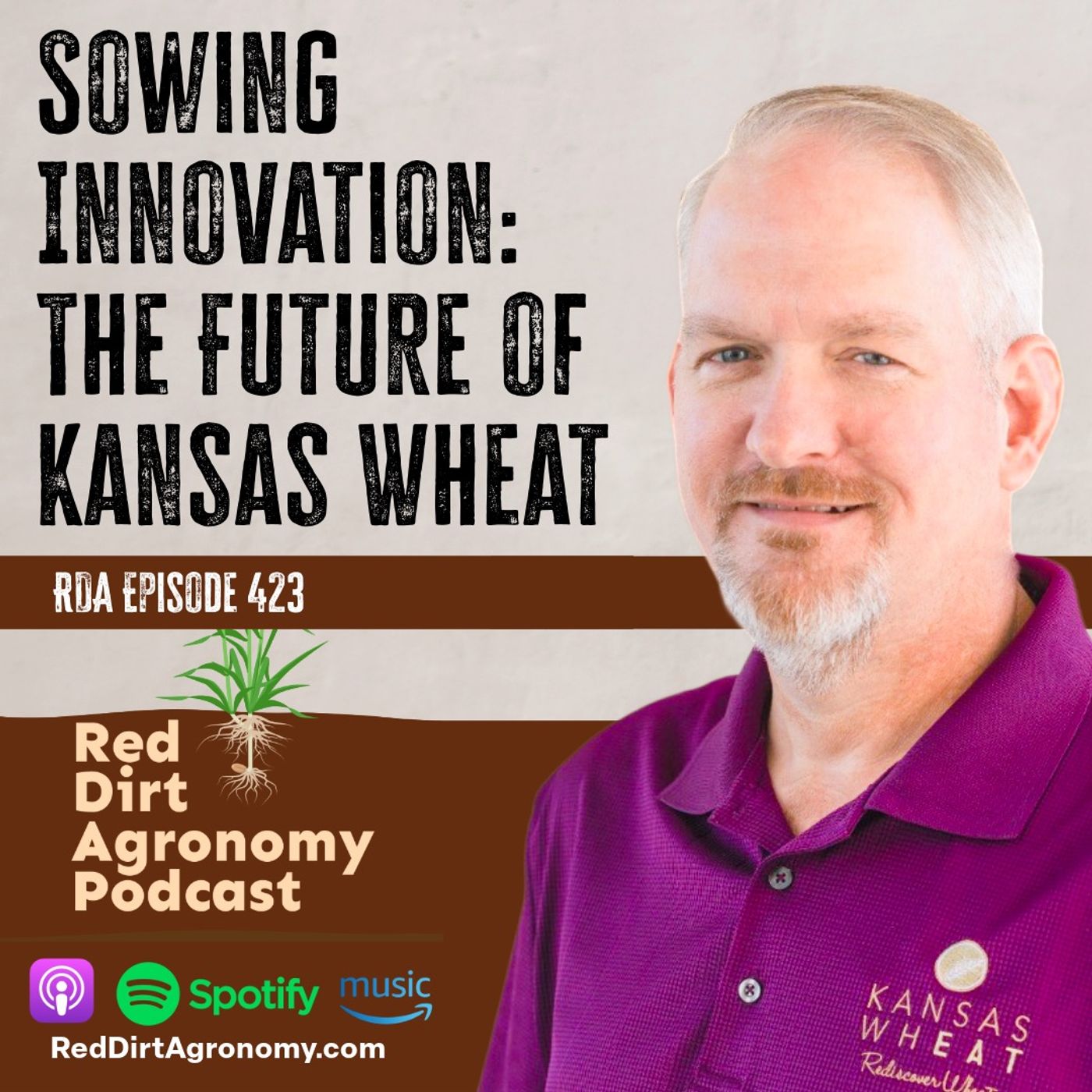Sowing Innovation: The Future of Kansas Wheat - RDA 423
- Author
- Aaron Harries, Raedan Sharry Ph.D., Brian Arnall Ph.D., Dave Deken
- Published
- Tue 09 Sep 2025
- Episode Link
- RedDirtAgronomy.com
This week on the Red Dirt Agronomy Podcast, we bring you a wheat-packed episode from High Plains Journal Live in Wichita with Aaron Harries of Kansas Wheat.
Aaron takes us on an incredible journey through the world of wheat in Kansas, including how railroads and immigrant farmers have shaped today’s production, and how cutting-edge research is transforming breeding programs.
He explains how tools like double haploids and gene editing are speeding up wheat variety development—and why the next decade may be the “golden age” of wheat research.
We also dive into Kansas Wheat’s education and outreach programs. From the targeted insights of Wheat Rx to the economic arguments behind “Beyond the Value of the Grain,” Aaron outlines a comprehensive strategy to support producers and inform decision-makers.
Add in the pressing threat of wheat streak mosaic virus and how “Fight the Mite” is helping growers combat it, and you've got an episode that’s as informative as it is essential for wheat growers across the Southern Plains.
Key Takeaways
- Kansas Wheat is at the forefront of modern wheat research, embracing tech like double haploids and gene editing.
- The Wheat Rx program is transforming how growers receive agronomic prescriptions for varieties.
- “Beyond the Value of the Grain” highlights the agronomic benefits of wheat in rotations.
- The “Fight the Mite” campaign is helping fight wheat streak mosaic virus via strategic management.
- Kansas Wheat’s checkoff program funds research based on farmer priorities.
- Grazing systems and volunteer wheat require a balance of economic opportunity and disease management.
- There’s growing collaboration between Kansas, Oklahoma, and Colorado wheat researchers.
- GMO wheat could soon help address viral diseases, but market readiness remains an issue.
- Educating consumers on the health value of wheat is an ongoing challenge, particularly in light of social media myths.
- Wheat is still vital to food systems—and its importance must be championed through research, outreach, and innovation.
Timestamps
00:01:58 – Live from High Plains Journal Live in Wichita
00:02:54 – What's on Your Mind podcast and wheat history
00:06:02 – Aaron’s role with Kansas Wheat and wheat research funding
00:07:38 – Double haploids and advances in wheat breeding
00:12:11 – Wheat Rx program and future of precision agronomy
00:14:16 – “Beyond the Value of the Grain” campaign
00:18:43 – “Fight the Mite” and wheat streak mosaic virus education
00:24:09 – Changes in Kansas Wheat and grower attitudes
00:27:02 – Collaboration across states and universities
00:33:08 – GMO wheat, new markets, and trade outlook
00:36:15 – Educating the public and combating misinformation
00:40:46 – The impact of social media and future outreach
RedDirtAgronomy.com
